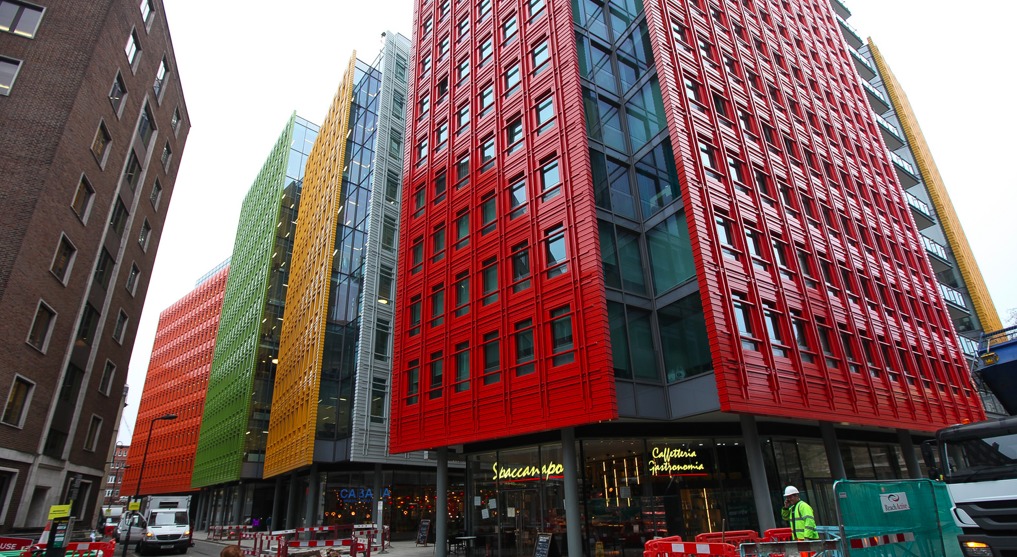 Author: Cheng Yuan
Author: Cheng Yuan
Covestor model: Value with Catalyst
Disclosure: Long RDI
It’s been almost a year since I last wrote. Admittedly, I’m incapable of writing consistently. But I couldn’t find much to say. Businesses do not change as quickly as the stock market. My model portfolio went through some lows and some highs. With only four holdings in my model portfolio, it is very concentrated.
One has to be able to stomach such volatilities and remain disciplined in valuing stocks based on the underlying value of the businesses. I’m breaking out of silence because one of my holdings, Reading International (RDI) went through some interesting developments recently.
During Reading’s 2012 annual shareholders meeting, the company gave an unusual slideshow presentation of the its performance. RDI also disclosed that Capstone Equities has expressed interest in acquiring two of Reading’s properties in New York – Cinema 1, 2 and 3 and Union Square Theatre – for $100 million, setting for valuations of $50 million apiece.
According to the Capstone letter, after netting out debt on both properties, Reading would be receiving proceeds of $75 million. To put this into perspective, Reading’s current market capitalization as of June 8th, 2012 is about $130 million. Keep in mind, Reading’s Burwood Square property (Melbourne Australia), which is unencumbered by any debt, was also estimated by Chairman Jim Cotter to be worth at least $75 million.
What’s more interesting is that Capstone is also a shareholder of Reading. In its letter to the Reading Board of Directors, Capstone valued the stock somewhere between $12 and $14 per share. Capstone has invested in New York City real estate for nearly ten years and has had some successes.
Retail investors like me lack the knowledge and experience needed to value commercial real estate. I believe a firm bid by an institutional real estate investor establishes a floor on the value of the two Reading properties. The value of the Cinema 1, 2 and 3 property is further affirmed by recent bids from other parties ranging from $40 million to $45 million.
Capstone in its letter echoed many shareholders’ disappointment with management’s lack of progress in monetizing some of Reading’s real estate. There are also other accusations in the letter which the Chairman openly addressed in the meeting. There are always two sides to a coin. I believe it prudent to ask yourself the motives behind such accusations and if there is anything to be gained.
One of the reasons the company declined Capstone’s bid is that management wanted Reading to have the right to co-participate in the future development of the Cinema 1, 2 and 3 property. According to RDI management, Capstone did return with an offer to co-participate but only after Capstone has earned a sizable preferential return.
This would have significantly reduced any upside Reading shareholders could gain from the co-participation. Management believed that the Cinema 1, 2 and 3 property, if combined with an adjacent parcel, could result in a $200-million development.
The Union Square Theater was never listed for sale. Instead, management reiterated its plan to redevelop the property on its own or in a joint venture. There is substantial tax savings that could benefit the developer of this parcel due to loss from designating part of the property as a landmark. For a more insightful analysis of the Capstone bid, I’d refer you to Andrew Shapiro’s article on Seeking Alpha.
While the Capstone bid was a welcomed development, there could be more excitement in store for Reading shareholders. Based on Reading’s market capitalization of over $130 million on May 31st, 2012, Reading has made Russell’s list of “reconstitution additions & deletions as of June 15, 2012” for both its Russell 3000 (RDI will be assigned to Russell 2000 portion) and Russell Global indexes. There could be a flurry of demand for Reading’s stock surrounding Russell’s actual reconstitution, when it takes place on June 22nd, 2012.




